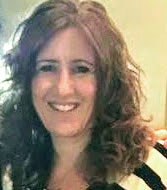 The day I became truly rich was the day the millions of dollars I held on to so tightly were gone. Sounds crazy, right? Don’t get me wrong—if someone handed me a check for millions today, I would gladly take it. The difference is, today I would know what to do with it.
The day I became truly rich was the day the millions of dollars I held on to so tightly were gone. Sounds crazy, right? Don’t get me wrong—if someone handed me a check for millions today, I would gladly take it. The difference is, today I would know what to do with it.
It’s taken me a long time to become willing to write about having millions slip through my hands. I’d spent years beating myself over the head for not being more mindful with it—and then beating myself up for beating myself up! I held back because I told myself no one would believe me when I said that having millions is wonderful—but it isn’t worth the price we paid. When losing millions forces you to realize you’ve gained a life with greater purpose, it’s a lot like having a cold bucket of water dumped over your head. It startles you into finally waking up from the long sleepwalk you’ve been calling a life.
Our financial advisor didn’t mince words the night we discovered it was gone. He sat down at our dining room table, and without looking up, said, “You are about to lose it all, every cent.”
We’d been rewarded a settlement after my husband’s accident. Crashing to the ground after falling 13 feet, left with a fractured neck and spinal cord injury, it was a miracle he was alive. Years of surgeries trying to repair his injuries followed. There were times we didn’t know if he would make it out of the hospital or walk again; it was grueling and exhausting.
On this night, still in a neck and back brace, I watched my husband pull so far within, I wasn’t sure I would be able to ever retrieve him again. Truth is, I wasn’t too far behind him.
To be greeted with the news you lost millions a few days after being released from a two-month hospital stay was crushing. It took my breath away. Our sense of security was already rocked by his health crisis. The last thing we were prepared to hear was that the money we relied on for a sense of safety was gone. But, looking back, it was a blessing in disguise.
I remember the moment I first held the check for 3.2 million in my hand. The rush that came over me, the excitement that took over. The dreams of having “it” had arrived. For the rest of our lives, all would be taken care of because now, we were millionaires, and our dreams would be ours. I believed the money brought with it complete security, shielding us from, well, being human. Just writing it makes me sigh and want to shout!
As the initial shock of having millions wore off, something began to haunt me. I was no longer exuberant over the money and it began to feel like I didn’t have it at all. It’s an empty place to be when you’ve hooked your hopes of happiness on money—or anything else outside of yourself. “I’ll be happy when…” “I’ll be happy if…” Those thoughts are not your friends. It was as if the money was there to wipe away all we lost, only for us to discover what we lost could not be bought. I had completely overlooked the health crisis that was at our front door, and the things the money could not take away.
Well-meaning friends and family often said, “It may not take away his injuries, but it must make life pretty nice for you.” Every time someone would tell me how they wished they had this kind of money, or how lucky we were to be “rich,” I wanted to scream. I would have given back every cent if it meant he would be free of his daily physical pain. Each scar left by the scalpel had a story to tell. It sucked to see my husband become a cripple.
Afraid of losing the money, and even more afraid of being responsible for it. Living in a constant state of financial fear—despite having millions in the bank—enabled me to avoid the real terror I met every day, as I watched my husband struggle to walk and get dressed by himself, the tears he shed, and the depression that took over for us both. I had become a stranger to myself, armored in self-protection.
In the words of Rumi, “Life is a balance between holding on and letting go.”
My journey on the road less traveled began in what felt like a blink. Each step I took asked me to get to the rock-bottom truth about myself, whether I liked what I saw or not. A lot of the time, I did not like what greeted me. Who had I become? I needed to let go of what wasn’t, and to embrace what was. To hold onto the truth and release the lies I kept telling myself. I came to understand being rich has nothing to do with money. I was saying goodbye to a life of illusions while gaining back a life I was connected to.
Through it all, I learned the value of staying. Staying with fear, sadness, grief, shame, and disappointment—my husband’s and my own. I learned how to stay with me, with us, and to extend compassion to us both. To let all the feelings come and simply be with them for a while. They wouldn’t kill me. What would kill me, like a dagger through the soul, was avoiding what I needed to know. As a result, I am now able to stay and bear witness to others as they release what they were afraid to be with before—a gift hidden inside the loss.
He explained that money is deeply spiritual when used for good rather than clung to for self. It requires mindfulness, contemplation, pause, and prayer. Money asks us to know what our values and priorities are. It’s a flow, a trust, an action, and a choice. When money is used in a spiritual manner, it is a way to give thanks and to give back.
With a pause, he then asked a question I still am asking myself today, “How can you make losing all of this count?”
After our financial advisor left, while my husband slept in his hospital bed in the middle of our den, faced with having lost millions, I wrote a list of all things I never wanted to forget. The list still hangs on my wall near my writing desk.
Whenever I feel myself forgetting what it means to be truly rich, I glance over to the list. Without fail, it brings me back home to my authentic self, grounding me in the values I uncovered as my bank account emptied.
The millions may be gone, but the lessons learned continue to enhance my life. Nothing is ever wasted; everything is here to teach us something. Learning how to live a life that is worth more than millions is the dream—it’s heaven on Earth.
What’s worth more than millions:
1. Something to believe in. Security doesn’t come from money. Get yourself a huge, soft, flexible, groovy, loving higher power who always has your back—and then listen to what it has to say.
2. Creativity. It opens the soul and brings you home. Greet the blank page, move the pen, paint a picture, dance, sing in the shower—wake up and do everything that makes your soul scream “yes!”
3. Intimacy. Authentic connection. Let people in, stop hiding behind the masks, and show up with a heart full of vulnerability. Be fearless in your pursuit of genuine relationships.
4. The gift of breath. This is what keeps us alive. Feel its warmth flow in and out, and stop taking for granted this one precious life you’ve been given.
5. Time. It’s our most precious commodity. Stop wasting time on perfectionism and people pleasing. Be present, and create boundaries so you’re saying “yes” to just the things that energize you.
6. Gratitude. Find life’s blessings every day, and everywhere possible. We are what we think: turn your eyes toward possibility, and live happy.
7. Being of service. Give freely what has been given to you, and tenfold it will be returned. Use your gifts to help someone else.
8. Forgiveness. It frees us all. Let go of all of your anger, the grudges you may hold—your past doesn’t deserve to keep you.
9. Compassion. Extend the benefit of the doubt and drop the judgments. Allow for humanness, yours and everyone else’s. Just be another bozo on the bus.
10. Love. It heals all things—spread it like confetti.
 About the Author:
About the Author:
Annmarie Devlin is a teacher and small business owner. When she’s not writing you can find her spending time with her husband, kids and furry children.

